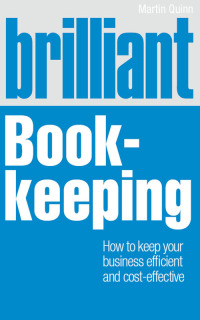Question
You have just been hired by Internal Business Machines Corporation (IBM) in their capital budgeting division. Your first assignment is to determine the free cash
You have just been hired by Internal Business Machines Corporation (IBM) in their capital budgeting division. Your first assignment is to determine the free cash flows and NPV of a proposed new type of tablet computer similar in size to an iPad but with the operating power of a high-end desktop system.
Note: Use Table 8.3 on page 247 as a guide to set up your FCF estimates.
Point 1: Development of the new system will initially require an initial capital expenditure equal to 10% of IBMs Net Property, Plant, and Equipment (PPE) in 2019 or data from 12/31/2019.
Point 2: The product is expected to have a life of five years.
Point 3: First-year revenues for the new product are expected to be 3% of IBMs total revenue for the fiscal year 2019.
Point 4: The new products revenues are expected to grow at 15% for the second year then 10% for the third and 5% annually for the final two years of the expected life of the project.
Your job is to determine the rest of the cash flows associated with this project. Your boss has indicated that the operating costs and net working capital requirements are similar to the rest of the company (implying the project will have the same ratio of EBITDA to sales and working capital to sales) and that depreciation is straight-line (over 5 years) for capital budgeting purposes.
Point 5: Use the data from the spreadsheet that I have provided.
Point 6: Determine the annual depreciation by assuming IBM depreciates these assets by the straight-line method over a five-year life (i.e., depreciate the cost of the new system in Point 1).
Point 7: Determine IBMs tax rate by using the current U.S. federal corporate income tax rate (Use an estimated 21% for the corporate tax rate).
Point 8: In year 1, you are going to increase NWC using the NWC / Sales ratio for IBM in 12/31/2019 using only A/R, A/P, and inventory to measure NWC (use Table 8.3 and 8.4 as a guide for how to bring the increase in NWC into your FCF estimate in year one and take it back out in year 5for simplicity purposes we are going to assume that NWC remains fixed in years 2 through 4 and then it is recaptured in year 5).
Point 9: To determine the free cash flow, deduct the additional capital investment and the change in net working capital each year (note: using information from Point 8, the NWC will only change in years 1 and 5see Table 8.3 line item 12 and Table 8.4 as an example).
Point 10: Use Excel to determine the NPV of the project with a 12% cost of capital. Also calculate the IRR of the project using Excels IRR function.
Point 11: Perform a sensitivity analysis by varying the project forecasts as follows:
a. Suppose first year sales will equal 2%4% of IBMs revenues.
b. Suppose the cost of capital is 10%15%.
c. Suppose revenue growth is constant after the first year at a rate of 0%10%.
Step by Step Solution
There are 3 Steps involved in it
Step: 1

Get Instant Access to Expert-Tailored Solutions
See step-by-step solutions with expert insights and AI powered tools for academic success
Step: 2

Step: 3

Ace Your Homework with AI
Get the answers you need in no time with our AI-driven, step-by-step assistance
Get Started


